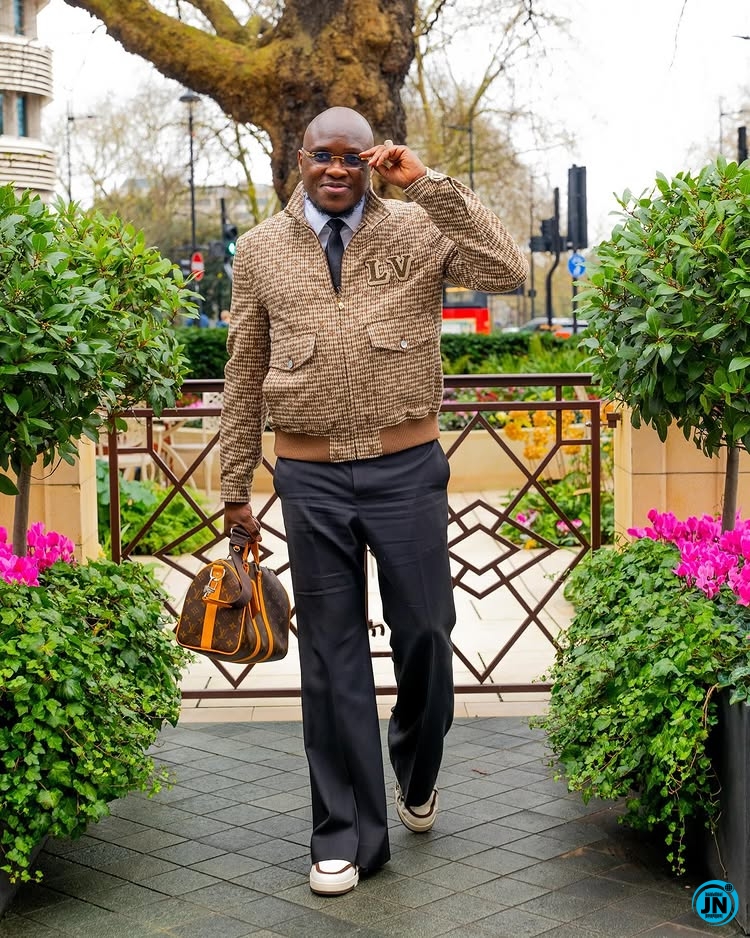Flamboyant Nigerian pastor based in the United Kingdom, Tobi Adegboyega, has sparked widespread discussions after he described Afrobeats superstar David Adeleke, widely known as Davido, as a gospel artiste. The pastor’s comments came as part of a conversation on the Off The Record podcast, where he elaborated on his belief that Davido’s music carries a positive message that aligns with the essence of gospel.
In his explanation, Adegboyega pointed out that the term "gospel" simply refers to “good news,” and he argued that Davido is effectively spreading this positive message through his songs. The pastor made it clear that gospel is not confined to a specific genre but encompasses any form of music that shares uplifting, good-hearted messages with the world. He then used one of Davido’s popular songs, "Stand Strong," as a prime example of uplifting content that fits the gospel narrative. According to Adegboyega, the song’s message of resilience and strength made it a fitting piece of "good news" to share with listeners, regardless of genre.

“Gospel means good news. Everyone there is a gospel artiste. Davido is a gospel artiste. Have you heard: ‘Because I stand strong?’” Adegboyega asked, reiterating that gospel music isn’t restricted to the conventional church sound but can also be found in secular songs that carry positive, life-affirming messages.
The pastor made these remarks while responding to criticism regarding his recent decision to feature secular musicians at his birthday celebration instead of inviting gospel artistes. The criticism raised concerns about the nature of his ministry, particularly his choice of performers. However, Adegboyega defended his decision, explaining that the secular artists, including Zlatan, were his close friends who had been with him through various personal challenges. He expressed that their presence and support were meaningful to him on a personal level, and this was why he wanted them to perform at his event. “What I had then was my friends—friends who are there through thick and thin. Davido told me: ‘I just want to be there and perform for one hour.’ They’re my friends. I didn’t pay any of them. They love me, and I will give my friends platforms,” Adegboyega explained, emphasizing the genuine nature of his relationships with the performers.
Furthermore, Adegboyega dismissed the criticisms from gospel artistes who questioned his approach to ministry. He strongly stated that he preferred to surround himself with people who were supportive of his vision and mission, rather than with those who sought to criticize him or judge his choices. “If gospel artistes aren’t my friends and are instead joining the bandwagon to criticize me by asking, ‘Is that a church?’ What should I do? Drag them with a rope?” Adegboyega responded, implying that it was more important to him to be surrounded by friends who truly had his back, rather than those who were quick to criticize or pass judgment on his actions.
The pastor went on to explain the deep bond he shared with his friends, including artists like Zlatan, and emphasized that these relationships were rooted in mutual love and respect. “It’s my friends that will be there. Everyone in that room was my friend. Zlatan is like a son to me; his kids are my kids, and his parents were in my house. So should I now say, ‘Well, because you are not gospel artistes, let me go and look for some gospel artistes who are criticizing me and force them to sing?’” he said. Adegboyega made it clear that his personal connections were far more important to him than appeasing critics who may not understand his choices.
Concluding his remarks, Adegboyega reiterated that his friends would always be part of his events, and he pledged that future events would continue to feature his supportive circle. “My friends will always sing at my events, and the next one will be bigger because my circle of friends keeps growing,” the pastor affirmed, underscoring his belief in the power of friendship and unity over external criticism.

